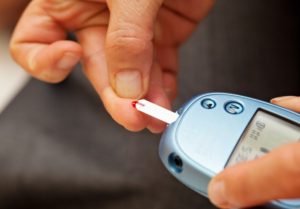
Prediabetes is diagnosed if a person has fasting blood sugar levels between 100 and 125 mg/dL (5.6 to 6.9 mmol/L). Fasting glucose of less than 100 is considered normal, while higher than 126 is enough for a diabetes diagnosis.
The observational study followed participants from 1960 to 2015 and included both white and black Americans. The sample involved 19,630 individuals with no prior cardiovascular disease (CVD) event. Risk of CVD was determined through fasting glucose analysis, which began at the age of 55 to 85.
The risk of CVD ranged from 15 percent in non-diabetics to 38 percent among diabetics who were women and 21 percent to 47 percent among men. An increase in fasting glucose levels was highly associated with a higher CVD risk.
Bancks added, “Although we found that individuals who had pre-diabetic levels of blood glucose did not have a higher absolute risk for cardiovascular disease, we know that most people go on to develop diabetes unless they take measures to reduce their blood sugar levels. Our study provides further evidence that if you can avoid diabetes, you may be able to stave off cardiovascular disease. Pre-diabetes should serve as a red flag to doctors to closely monitor their patient’s blood sugar to try to prevent diabetes through lifestyle interventions like better diet and increased physical activity, and if necessary, with pharmacologic therapies.”
Being diagnosed with prediabetes is not a life sentence that you will develop type 2 diabetes. By implementing the proper lifestyle changes, you can restore your fasting glucose levels to a healthier range. Furthermore, many of the lifestyle changes to help reduce the risk of diabetes also benefit the heart. You will further reduce your risk of a heart-related event from occurring.
Also read:
- Natural ways to improve heart rate and get your heart pumping
- You’re at risk of diabetes if you have these symptoms
- Diabetes diet: Healthy snacks for managing diabetes